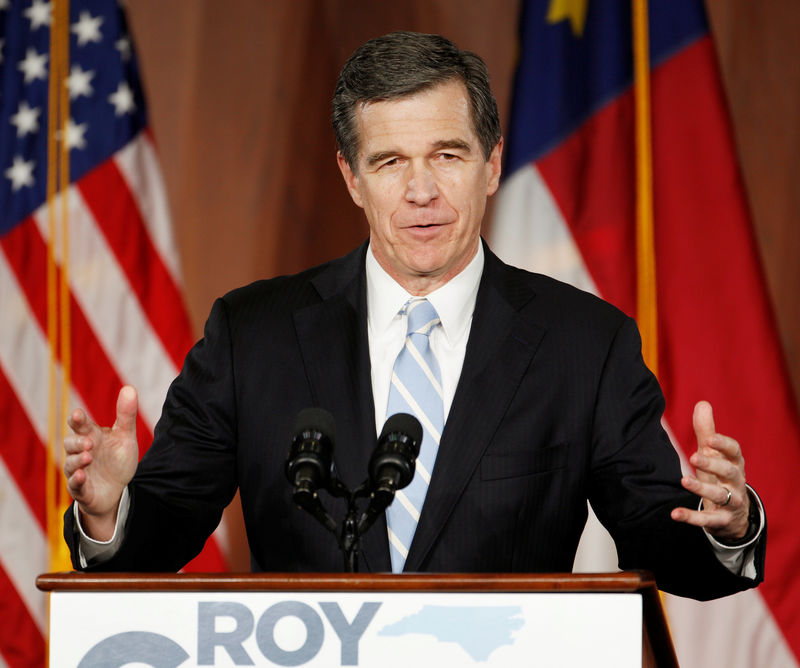By Marti Maguire
RALEIGH, N.C. (Reuters) - North Carolina's Republican-dominated legislature is moving to strip powers from the state's incoming governor, Democrat Roy Cooper, three weeks before he is to succeed a Republican in the executive mansion.
Lawmakers on Thursday began debating a bill to require Senate confirmation for cabinet appointments, reduce by 1,200 the number of state employees the governor can hire and fire at will, and eliminate the governor's power to pick University of North Carolina trustees.
The legislation and related bills came as a surprise, filed late on Wednesday on the heels of a special "lame duck" session of the General Assembly called to consider relief for Hurricane Matthew victims.
Cooper, to be sworn in on Jan. 7 after defeating incumbent Republican Pat McCrory by 10,000 votes last month, said the proposals are aimed at holding him back.
"Most people might think that this is a partisan power grab, but it is really more ominous," Cooper said at a news conference in Raleigh on Thursday. "This is about thwarting the governor's ability to move us forward on education and healthcare and clean air and water."
Cooper, currently state attorney general, said his office is reviewing the proposals and will sue if lawmakers approve any measures he believes are unconstitutional.
McCrory's office did not respond to a request for comment on whether he would sign the legislation.
Republican lawmakers called the changes justified by the state's constitution. Senate confirmation hearings were held earlier in the state's history, they said.
"This bill is a good step forward in reasserting legislative authority vested by the constitution and entrusted to the members of this body," Representative David Lewis, a Republican and a sponsor of the bill, said during a debate on Thursday.
A House of Representatives committee, in an unrecorded voice vote, advanced the bill on Thursday, as about 100 people gathered at the legislature to demonstrate against the proposals.
The Senate debated a separate measure that would weaken the governor's control over the state elections board, changing it from a five-member panel appointed by the governor to an eight-member panel with only half the members appointed by him.
Protesters who chanted "You work for us" and other slogans were cleared out of the Senate chamber after legislative leaders said they were disrupting debate on the bill.
North Carolina, the ninth most-populous U.S. state, has been roiled by sharp political divisions. The state voted for Democratic presidential candidate Barack Obama in 2008 and then turned to the right, electing McCrory in 2012 and Republican super-majorities in its state legislature.

The state became a target of boycotts by companies, musicians and sports leagues after it passed a law this year restricting bathroom access for transgender people in government buildings and public schools.